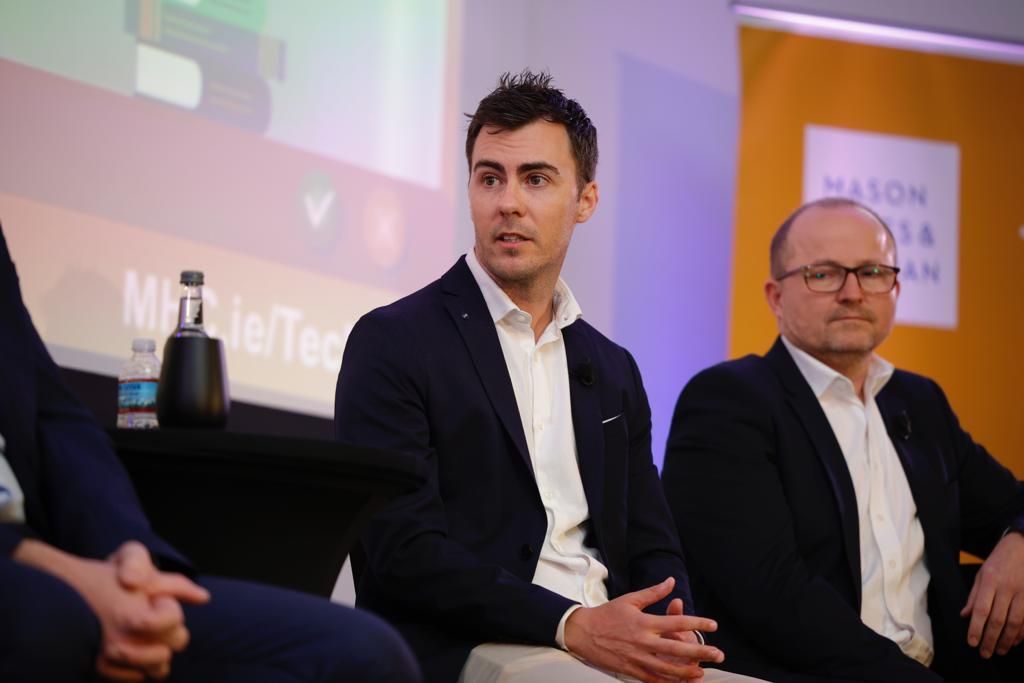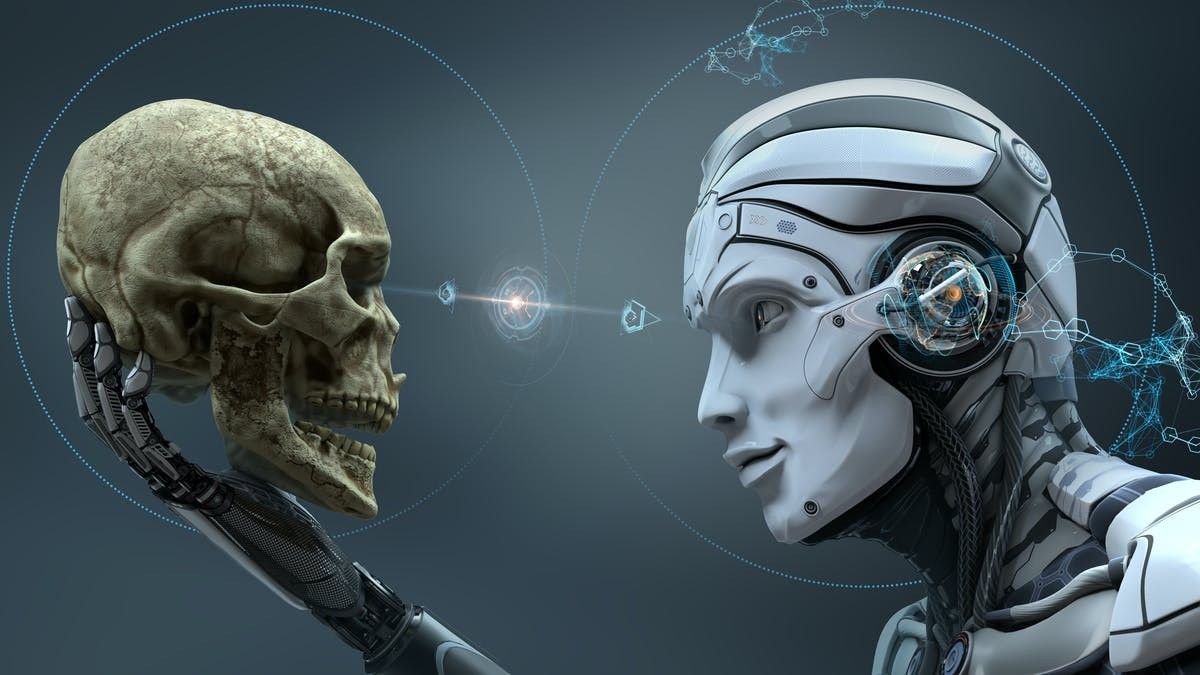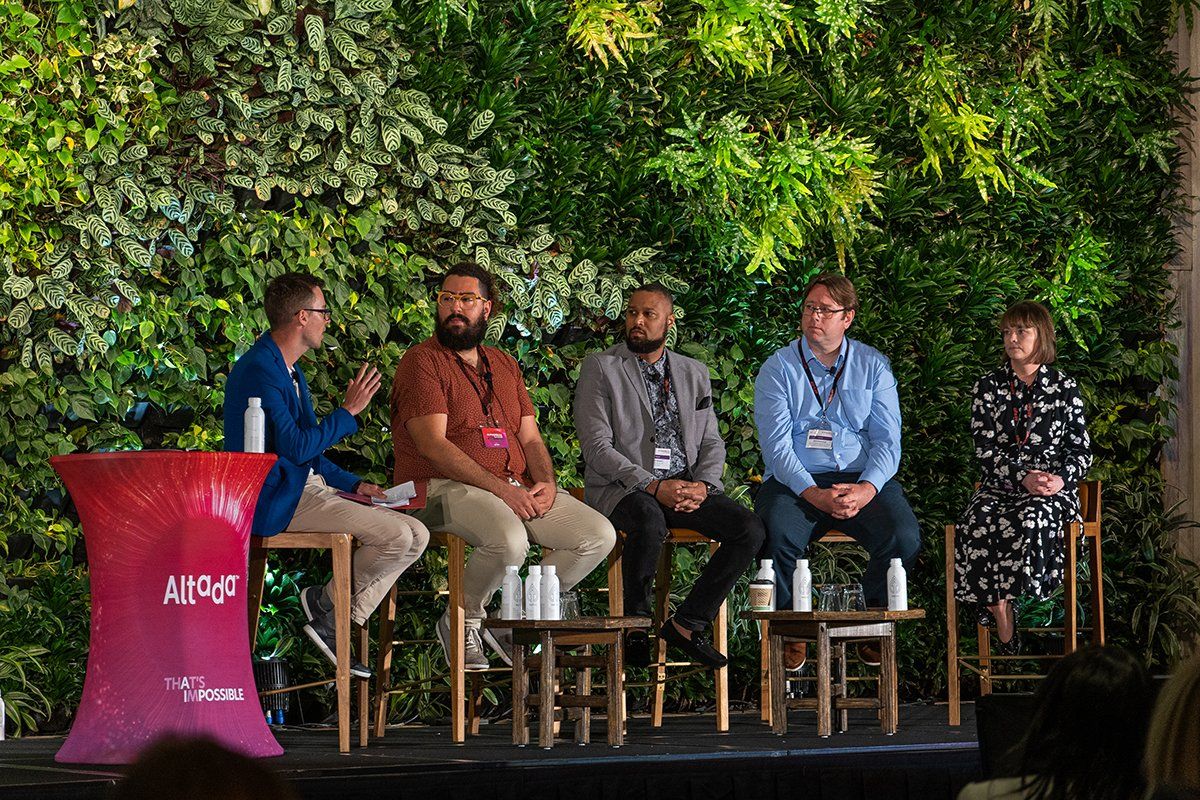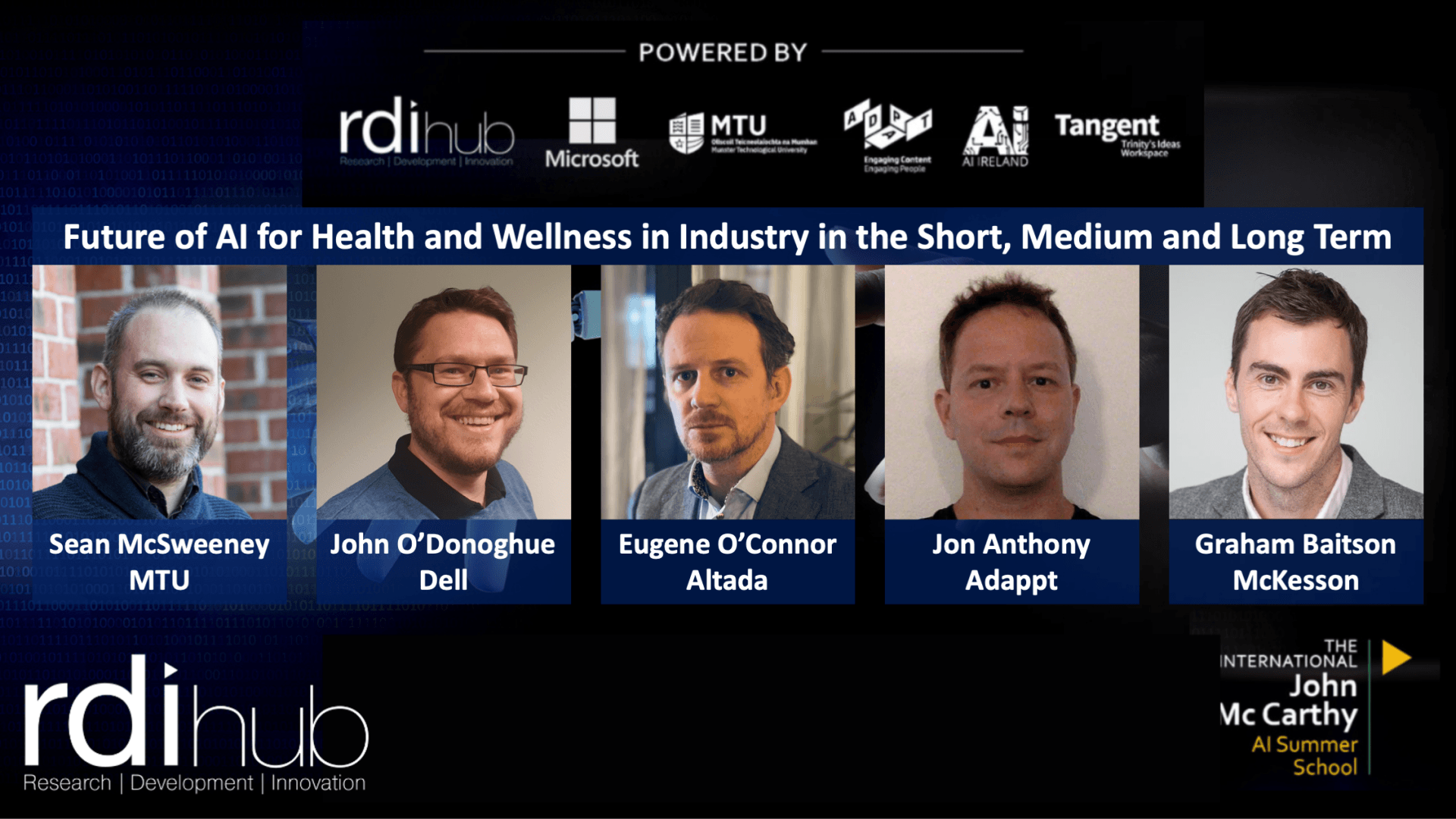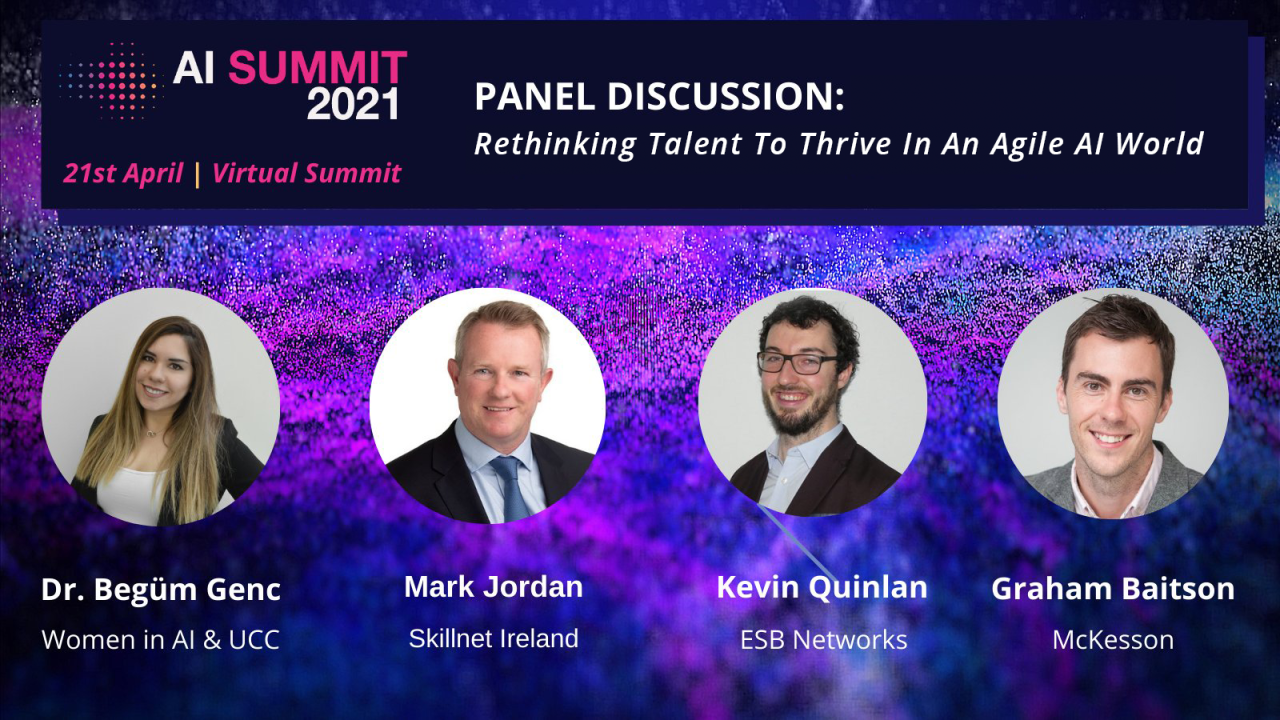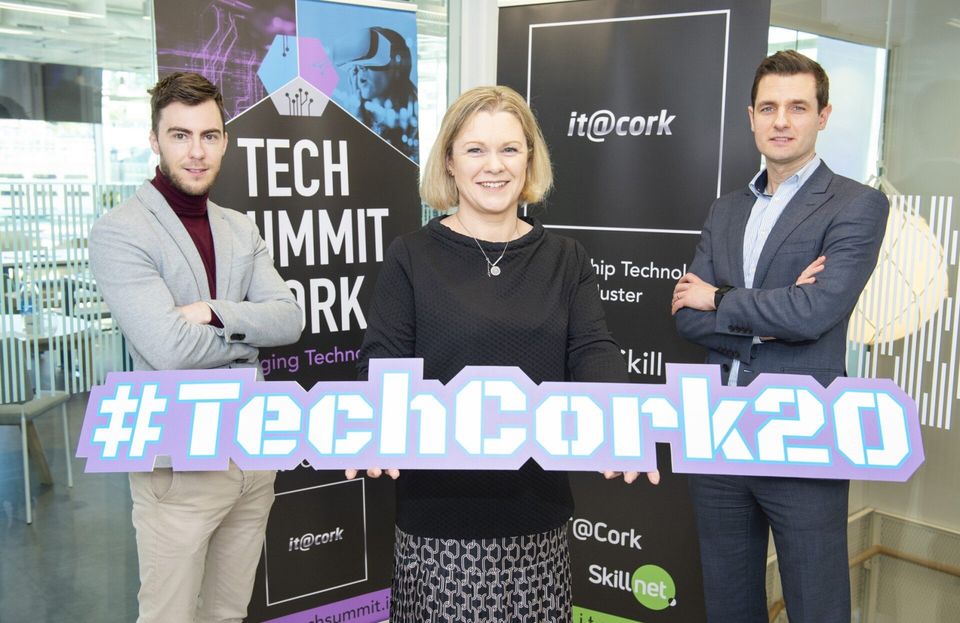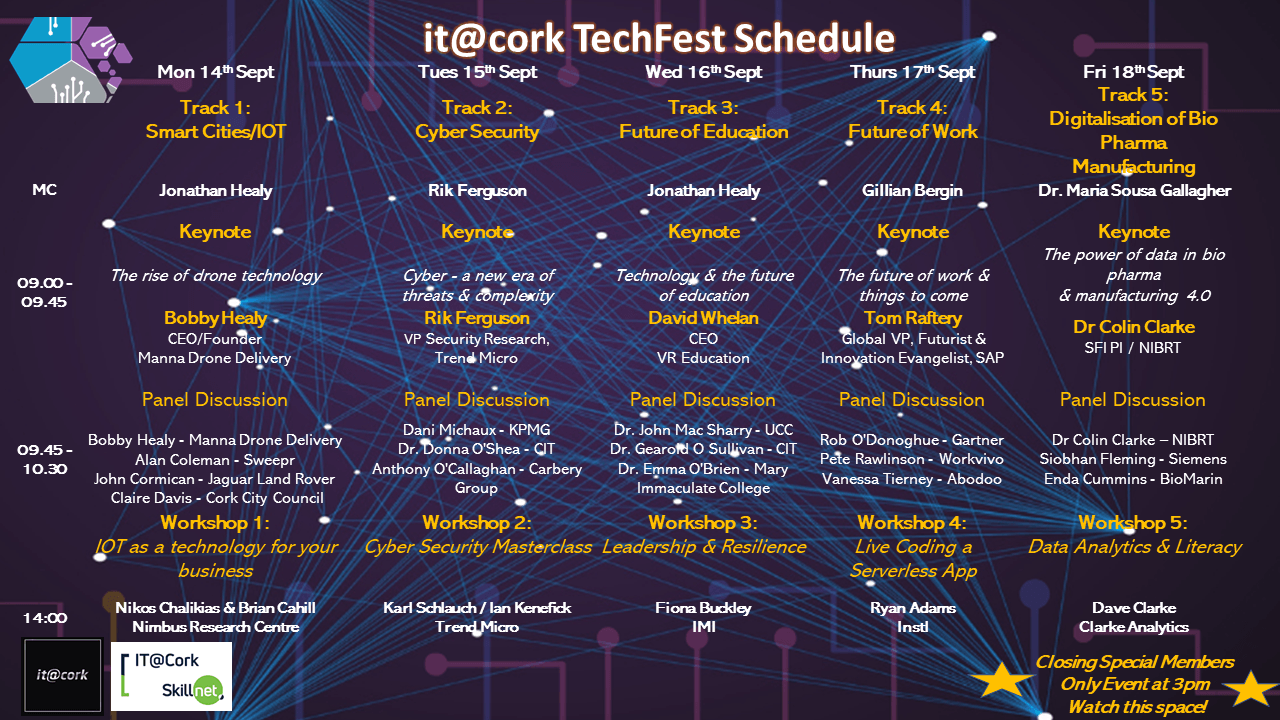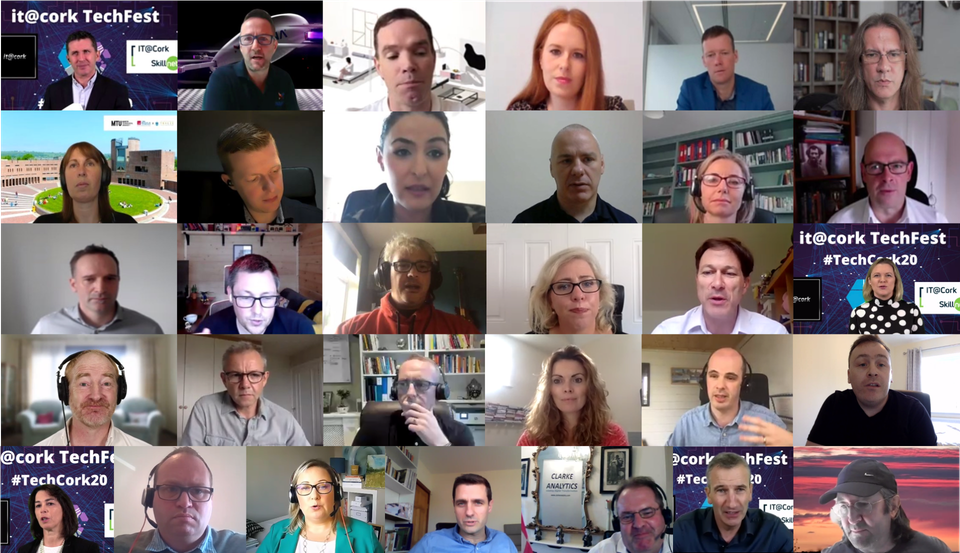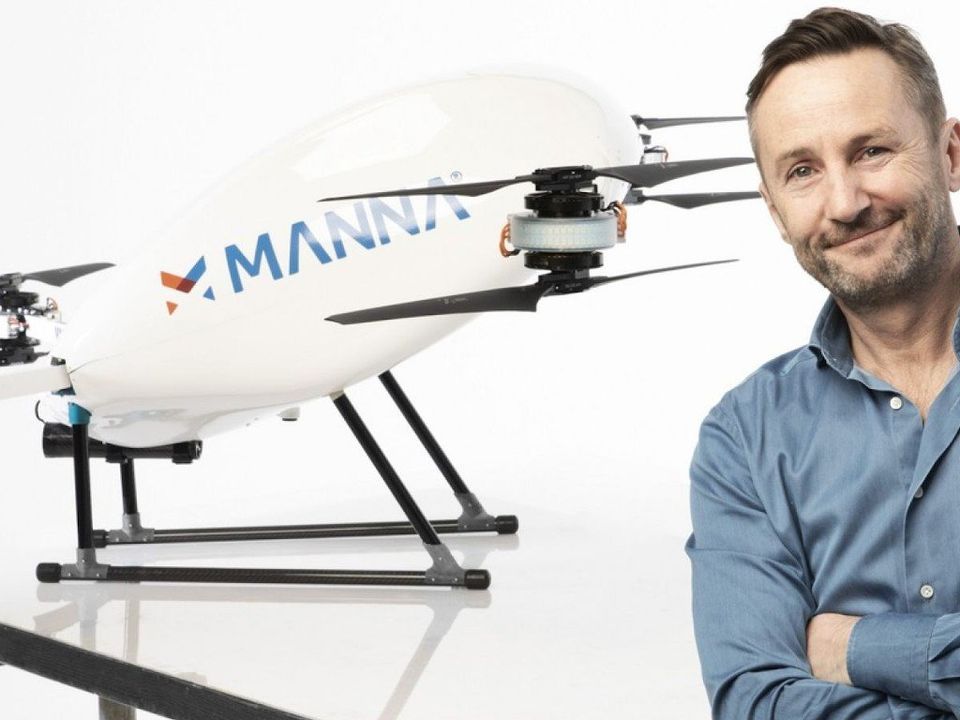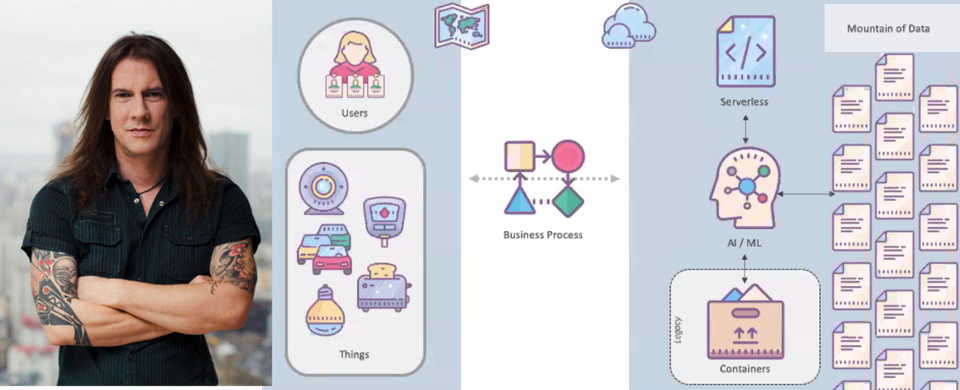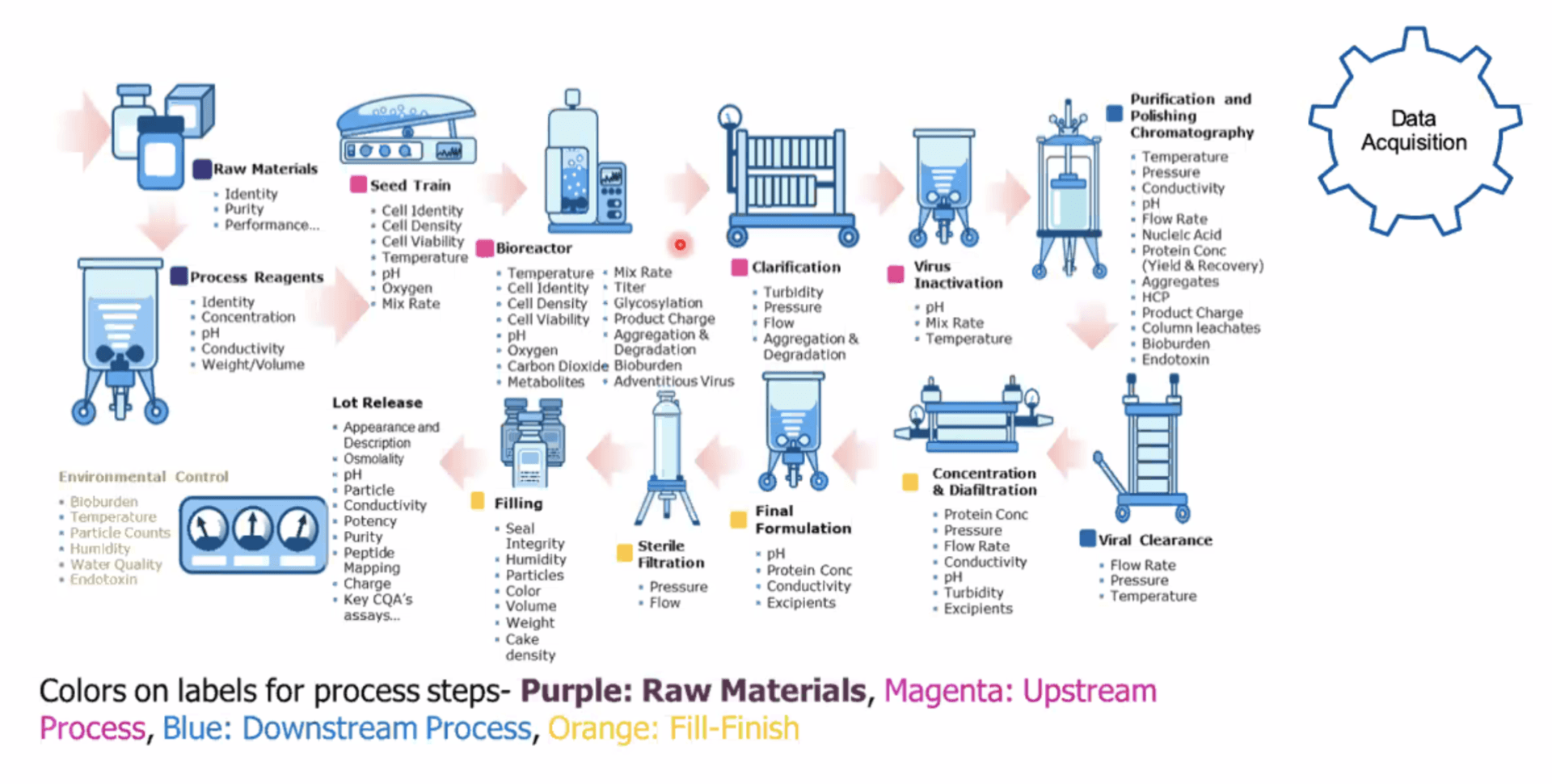Key Notes from the Keynotes: IT@Cork TechFest Conference 2020
10 Minute Read
The following are my thoughts and overview from each of the keynote speakers during this years IT@Cork's TechFest Conference. All thoughts, views, and opinions are mine.
Conference Schedule
It was great to be involved with IT@Cork this year and organising the IT@Cork TechFest Conference. Due to the ongoing pandemic, it was decided to host the annual IT@Cork Tech Summit virtually. With something that was on the cards for years, this enabled IT@Cork to rebrand, create a new website, and also deliver this conference online creating the ability to reach a broader audience.
Figure 01: Graham Baitson, Gillian Bergin, and Eoghan O'Mahony at the Launch of the IT@Cork TechFest Conference 2020
This year was bigger, bolder, and better than ever, with it being a week-long technology festival comprising of 5 tracks with the addition of workshops. We even gave the audience the opportunity to vote for the tracks that they would wish to see, and we gave them what they asked for; Smart Cities, Cyber Security, Future of Education, Future of Work, and Digitalisation of BioPharma Manufacturing.
Figure 02 - IT@Cork TechFest Schedule
A big thank you to all the speakers. It's never an easy job collating all the information, making it interesting, and leaving the listener/viewer with some educational and though-provoking insights.
Figure 03 - TechFest Speakers
Track 1: Smart Cities/IoT (Keynote - Drone Deliveries)
Within the last few months, we have all been adapting to our unusual circumstances that have been besieged upon us. By social distancing and, in some cases, quarantining, we have had to look for alternate ways in which to interact with the world around us. Focusing on the silver lining, the advancements in digital and technology has enabled us to stay connected and also accelerate the non-technical savvy people and people at risk to utilise the range of technology available to live their life as normal as possible. Many people have become accustomed to getting their food and packages delivered to their door. But how would you feel about getting your items delivered by drones? Well this was the topic of discussion that kicked off this years IT@Cork's TechFest Conference.
Figure 04 - Manna Drone Delivery
Starting with a poll, 95% of the viewers of TechFest said they would be willing to accept their delivery by drone. This number would have been most likely a lot lower without the recent increase in home deliveries, but what would be your biggest concern if you were to think of a drone delivering your package? During the keynote, founder of Manna Drone Delivery, Bobby Healy, debunked a lot of the initial assumptions and concerns that people normally have when considering drone-as-a-service delivery, primarily around noise disturbance, privacy, and reliability. He stated that with a flying frequency of 50Hz, even at night, the drone is relatively quiet and therefore should not cause much disturbance. From a privacy concern, the drones have no recording equipment, does not store any customer data, doesn't even know what it's carrying, and is fully autonomous. When discussing reliability, he stated that the drones can fly in 99% of Irish weather; can fly in heavy rain and with a maximum wind speed of 40mph. Finally in relation hijacking, as there is no network connection on the drones themselves, there is no way to access them without physically interaction.
So with all of this information, how likely would you be to receive your packages via a drone? Are you convinced that this service is secure? Would you trust that your package will be reliably and securely delivered?
Track 2: Cyber Security (Keynote - A New Era of Threats and Complexity)
In one of my recent articles 'We Are At War... A Cyber War; With 20 Billion Connected Devices. Just How Safe Do You Feel?', I gave an overview of the cyber-security threat landscape and how connected devices are resulting in us becoming digitalised versions of ourselves. And from what we've heard from Rik Ferguson of Trend Micro, these numbers have been continuing to grow since. During his talk, he mentioned that the cyber crime industry is now worth $1.5 trillion annually, with some companies that we've never even heard of, holding 11,000 data points on people across 62 different countries. But the threats are not only towards individuals, they are also towards commercial and national entities, with the offer of buying data, logs, phone numbers, access, propaganda, fake news items, etc... all on the black market.
Figure 05 - Organisations Architecture of the Future
These potential threats could then be amplified as we move into the future of organisations owning no architecture. Ferguson said that organisations will start to solely rely on as-a-service products, that can be spun up with all their dependencies and create mountains of data. This could create a wave of concerns due to the move towards volatile and software defined networks, machine to machine subscribers, vast amounts of data, the use of non data centric user patterns, and an exponentially greater surface for attack. Ferguson ended explaining that volume of threats that banks receive per day is upwards of 100,000, with each one taking a security operations centre (SOC) analyst spending 20-25 minutes per alert. This results in 41667 hours of effort per day which breaks down to over 5200 people to deal with these issues.
Looking at these figures above, how important a role do you see machine learning (ML) and artificial intelligence (AI) playing in the future of protecting people and organisation's data and valuables?
Track 3: Future of Education (Keynote - Technology and the Future of Education)
In one of my recent articles 'Are Humans the Next Horse? The Rise of the Robots' I discussed the future of education and the importance of shifting from a predominantly left brain focused curriculum to a right brain. We have all seen the impacts that the latest events has had on education, specifically in relation to children not being able to go to school. Parents around the world have been forced to step into the professional educators footsteps, and in turn, realising just how difficult it actually is. Virtual reality (VR) is one technology which can help bridge this gap. VR has been used for years by the likes of NASA for training, but it's only within the last few years that it has become mainstream available due to the price becoming relatively affordable. David Whelan, CEO of VR Education, explained during his keynote, how VR can be introduced to education allowing not only this shift to a right brain focused curriculum, but also tackle many challenges and future progression when it comes to education.
Video 01 - ENGAGE, VR Education
Not only does VR allow for distance learning, it has also been proven that VR allows for a retention rate of 80% compared to that of 20% for traditional training methods (Training Industry, 2018). Whelan then went on to say that he sees the future of education being tailored by the individuals. For example, you will soon have the option to sit in a virtual classroom in MIT and take a physics lecture in the morning, and then sit in a virtual classroom in Cambridge and take a literature lecture in the afternoon. You will also have the option to choose educators that suit your style of learning. For example, if you learn better through visual interaction, you can pick an educator that has a more visual approach to teaching. From an educator point of view, Whelan sees this as an opportunity for educators to specialise further in specific areas.
As my first job was part of a team who developed a virtual reality, haptic based medical simulator for the training and assessment in ultrasound-guided regional anaesthesia, I've seen first hand how much of a positive impact these type of training and teaching methods can have. But there can also be challenges. For example, there are studies that show when spending too much time immersed within a VR environment, dizziness and disorientation, among others, can be caused, so it's advisable to take a 10-15 minute break every 30 minutes (Business Insider, 2018).
What do you think of VR education? Do you think the positives outweigh the negatives? Are you excited for this? Would you take a course that was delivered through VR?
Track 4: Future of Work (Keynote - The Future of Work and Things to Come)
It doesn't really matter what industry you are in, everyone has been impacted from a professional perspective in some shape or form during the last few months. Whether you are forced to work from home and not only miss the interactions with your colleagues, but also miss getting nuggets of information from passing each other in the corridors, whether you now have to wear a mask when interacting with people which in turn can lead some certain difficulties, or whether you have been in the unfortunate position that you have lost your job and now have to look for alternate ventures, everyone has had to and will be forced to adopt a new way of working..... but what will this be like long-term?
Figure 06 - Tom Raftery Discussing the Future of Work
The keynote from Tom Raftery, Global VP, Futurist, and Innovation Evangelist at SAP, started off with a poll that resulted in 59% of people saying that they would like to continue with a mix from working from home and working in the office. As a futurist, Raftery looks at trend lines of technology, the impact of these technologies, analyses, and then predicts what the future looks like for that particular technology. In relation to COVID, Raftery doesn't see much changing until a vaccine is put in place, which will most likely take up to 12 more months. During this time, we are going to see a rise in the cost of living. Tasks such as visiting the hairdressers now require advanced booking, wait for the area to be disinfected before and after use, etc... which all results in a higher cost for the consumer. If you look into other industries such as manufacturing, Raftery outlined that with physical distancing measures being put in place, this means that less work can get done on a manufacturing line. The options in this case are to spin up a new line (if there is space to do so), put on extra shifts (if that's possible), or increase automation. All of which have cost implications, but with the automation option, the result will be at least the same output with fewer staff.
"We always overestimate the change that will occur in the next two years and underestimate the change that will occur in the next ten" - Bill Gates
Being a futurist and trying to predict trends is even more challenging in these uncertain times. A lot of the predictions have been put on hold due to the current events. Jobs will be lost, lots of them. But Raftery concluded his keynote by outlining the mammoth tasks the world is undergoing should it need to roll-out an ongoing vaccine. People will need to be employed into areas such as contact tracing, distribution, etc... The logistics required will be enormous and on a scale never seen before. If a booster is required, that's up to 7.8 billion people per year will need access to this treatment, possibly even vaccination passports to prove that you are not contagious.
So taking everything into account, what new industries do you see advancing as a result of COVID? Do you see any long-term psychological affects as a result of social distancing, lack of interaction, inability to care for loved one, etc...?
Track 5: Digitalisation of BioPharma Manufacturing (Keynote - The Power of Data in Biopharma and Manufacturing 4.0)
At the start of the year, and even at the start of the pandemic, I think most of us would have never thought that in September 2020 we would still be locked down. It now seems as the only way out of this pandemic is when a vaccine has been developed and becomes mainstream available. But just how difficult is it to make a vaccine? In his keynote, Dr. Colin Clarke, Principal Investigator at The National Institute for Bioprocessing Research and Training (NIBRT), gave an overview of the process of creating pharmaceutical drugs and how data plays a big part in understanding the structures.
Figure 07 - A Typical mAb (antibodies that are made by identical immune cells) Manufacturing Process
When comparing antibodies and molecules to your regular over-the-counter drugs (e.g. Aspirin), the process of complication are orders to magnitude greater. Clarke explained that the biopharmaceutical manufacturing process is so complex, that the molecules consist of more atoms that stars in the universe. But data in constantly helping to improve this process, especially with the introduction of machine learning. By constantly analysing the data at each step along the creation process, monitoring the environment, measure the characteristics, taking corrective measures to fix any issues, machine learning can look into the future of the process and determine if the process will result in an incorrect molecule.
"If you torture your data long enough, it will confess" - Ronald Coase
Data lies at the heart of everything in Biopharma 4.0. Cenk Undey from Amgen recently gave an overview of the amount of data analyses during the manufacturing of their products. He stated that within research and development, one of the robotics-based drug screenings generated 200,000 data points per day and that 500 million continuous data points are generated per product from manufacturing equipment (Umetrics, 2019). Now although in big data terms, so of these wouldn't compete with other industries, Clarke went on to mention that the levels of complexity of biological systems are far beyond anything else. When working with these levels of data, Clarke concluded that collaborating with people from different backgrounds and also industry partners is essential, and outlined the following important factors in order to ensure performance and accuracy.
- Scalability - eliminate complexity and disruption
- Cost Efficiency - use commodity hardware
- Flexibility - handle structured and unstructured data
- Performance - avoid the overheads of traditional systems
Considering how complex and unstable our biological internal systems are, when do you think we should expect to see a vaccine?
Final Thoughts
The ongoing pandemic, along with natural disasters, climate change, and other international events, are leaving huge irreparable dents in our planet, our lives, and our minds. The world is constantly changing, and if history has thought us anything, it's that we must adapt in order to survive. I'd be interested in getting your thoughts on some of the questions I raise above. Until next time, I hope you enjoyed the read. Stay safe - GB.
References
- Business Insider. 2018. Here's what happens to your body when you've been in virtual reality for too long. [online] Available at: https://www.businessinsider.com/virtual-reality-vr-side-effects-2018-3?r=US&IR=T. (Accessed 16 September 2020).
- Figure 03: IT@Cork TechFest Schedule. [online] Available at: https://www.itcork.ie/wp-content/uploads/2020/07/it@cork-Schedule-Overview-Final-1-1.png
- Figure 04: Manna Drone Delivery. [online] Available at: https://www.irishtimes.com/business/technology/ucd-campus-first-stop-for-drone-takeaway-food-delivery-1.4184857
- Training Industry. (2018). 3 Ways Virtual Reality Training Is Producing Better Outcomes. [online] Available at: https://trainingindustry.com/articles/learning-technologies/3-ways-virtual-reality-training-is-producing-better-outcomes/. (Accessed 16 September 2020).
- Umetrics. (2019). How Digital Transformation Helped Amgen Implement Real-Time Process Control. [online] Available at: https://blog.umetrics.com/how-digital-transformation-helped-amgen-implement-real-time-process-control. (Accessed 18 September 2020).
- Video 01: ENGAGE, VR Education. [online] Available at: https://www.youtube.com/watch?time_continue=26&v=m_44MehaXxU

